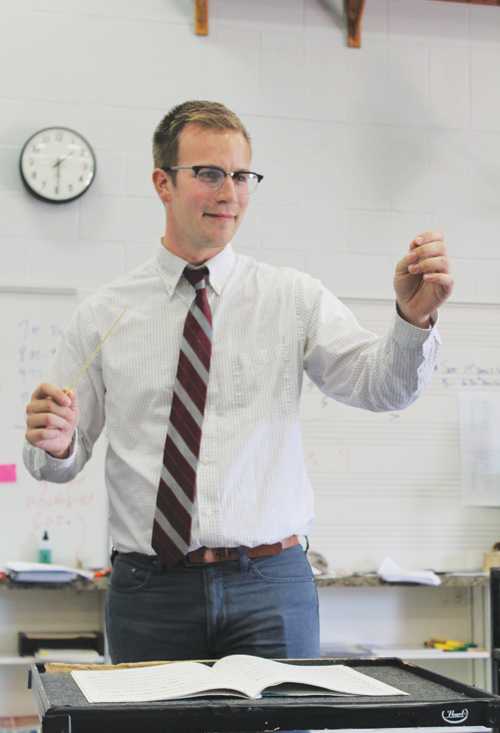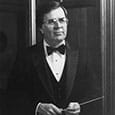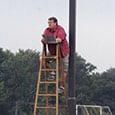
Whether you are at the start of your college career in music education or about to begin student teaching, there are some key considerations to make before your first day as a student teacher. If you are just beginning your collegiate journey, you should know that your core music classes are all valuable and that, yes, every one of them is a key component to your success.
Student teaching can be exciting, and it is a time full of anticipation. The drive to master as much content as you can before your student teaching experience begins will benefit not only your own success, but also your future students’ growth. Your knowledge will help your students to achieve success in the long term.
Being on Your Game
With a beginning or junior high band, it is critical for student teachers to know that they have to be on their game for every minute of the rehearsal. Attention spans at the elementary level are different than they are at the high school level. Students can easily be distracted, and it can take hard work to get the students back on track. Being on top of things is a must, and this requires having efficient, streamlined lessons. Effective preparation will lead to success. You do not want to waste time and end up at the end of your concert cycle wishing for one or two more rehearsals.
The Essential Tools
As soon as my student teachers have had a chance to get adjusted and learn the names of the students, I begin assessing the student teacher based on knowledge of embouchures, fingerings, finger placements, and posture for each instrument. A student teacher should be able to explain and demonstrate how to produce a good tone on each instrument, including oboe and bassoon. I also require student teachers to show me the basics of proper drum technique, including roll lengths and common rudiments typical of a second level band methods book. Tympani techniques as well as mallet and stick choices should also be discussed. If available, I will have a high school student who does not play that specific instrument to sit in while the student teacher demonstrates how to produce a concert F on the instrument, or I will ask the student teacher to teach a student who does not play percussion how to use the proper percussion techniques. I also work with student teachers on various other subjects such as basic instrument maintenance, restringing horn valves, removing a stuck mouthpiece, and replacing a drum head.
How Do You Finger that Trill?
I am surprised to discover that many student teachers believe that looking up fingerings is easier than retaining all of them. I think this is a mistake, so I have begun to implement fingering assessments. The student teachers are usually assessed one instrument at a time and are given a page of the most common lowest pitch to the highest pitch likely in a grade 4 selection. It is usually set in chromatic format, and the student teacher is asked to write in each fingering. This allows me to see the strengths and weaknesses of the student teacher, and it also stresses the value of methods classes. From experience, I have found that the limited time that students spend in methods or techniques courses is insufficient for them to grasp all the ins and outs of each instrument. Looking up a fingering in a book could take too much time, and this may allow students to get off task.
Another important teaching point is to focus on common trills and where those keys are located on the instrument. With scheduling difficulties that are common in many schools you may find that your with the students to work on problems like fingerings is limited. This is one more reason not to lose time on looking up fingerings. It is far better to stay knowledgeable in these areas.
Party Time
Invite your peers to gather once every two weeks for an evening with snacks or dinner and have a question-and-answer session. Everyone should bring their instrument and questions, and spend an evening just breaking down the tough components of each instrument. This can happen by working one-on-one, talking in a roundtable setting, or just lounging around in a larger setting. Student teachers should figure out their weaknesses and ask questions. This can be a fun and quick way to sharpen skills in this area and find others who may have the same questions. This will help to develop skills to address the common difficulties of each instrument. You can also change the subject matter to include music history, music theory, oiling valves, restringing a stringed instrument, or general music techniques for each grade level. You could even try testing your transposition skills or finding clever ways to transpose on the fly.
Keeping Up with the Literature
Literature at all grade levels is always changing, but student teachers should at least be able to identify the classics that are great staples to a student’s musical diet. I think students should experience some of the classics as well as new works by some of the great composers of today.
I give my student teachers a list of about sixty listening examples at various grade levels, and we discuss about two each week, focusing on why they stand out as classics. We also discuss elements regarding range, instrumentation, technical and musical characteristics, and potential roadblocks that would require close attention. We also touch on all grades of jazz charts for junior and high school levels, as well as pep band charts.
Promoting the Program
I also want my student teachers to understand that there are organizational components to the job. I ask them to construct concert programs with different selections and grade levels, and I also ask them to explore ways they can create excitement and interest for their students. With social media, there are opportunities to post performances, both current and past. It is important for student teachers to begin thinking of how to promote the program to the community. Often the student teacher will have a strong grasp on technology. Do not be afraid to draw on these skills in working with your mentoring teacher. If you do this, you can try to implement your ideas to see if it is something that will work. It never hurts to ask and work out the bugs before you do it on your own.
Conducting Is Communication
Conducting technique is sometimes put on the back burner when student teachers get heavily engrossed in their work. Conducting is a way of communicating non-verbally to promote expression and musicianship. Carve out time each day to watch yourself in a mirror to see if you are truly communicating what you want students to demonstrate. Ask permission of the students and the director to videotape yourself in every rehearsal. Explain to the students that the camera will be focused only on you and that it is for learning purposes only. Videotaping not only allows you to see how you conduct, but it also will allow you to listen to your words and the sounds of the ensemble. I believe it was once stated by Francis McBeth that you are the reflection of your band and their sound. If you can understand the importance of communicating with your band students through your conducting technique and expression, then you will like what you see in the mirror.
Detective Work
Listening is vital to your success. Time spent on sightsinging and on sharpening your listening skills can make a huge difference in your ensemble’s success. During musicianship classes students may wonder why they have to work on sightsinging day in and day out, but those late nights of sightsinging in the piano labs will pay huge dividends when you finally step onto the podium. This skill allows you to be a fine detective who can identify incorrect pitches or fingerings and work on important areas in intonation, balance and blend. Again, the process of recording the ensemble and studying the result will allow you to hear any blend, balance, or intonation problems you may have missed.
Seek Out Summer Experiences
Student teachers should seek out more hands-on experience during the summer. Directors may need help at marching band camps or throughout the summer with lessons, or they may even need a summer musical pit director. A lack of marching, pep, or jazz band experience can sometimes be a limitation when it comes to hiring, but this experience can be gained. There are also many ways to begin to connect and network with others in your surrounding areas, and I urge you to seek these out. I understand it is difficult for many college students who are trying to find employment to pay the bills or taking extra classes, but if there is a will, there is a way.
Pocket the Important Stuff
It is a good practice to keep a small notebook in your pocket to take notes when items of importance come up. For example, when I catch up with other directors or attend a concert, I will pull out my small pocket notebook (now my tablet) and write down potential selections I could use with my program, along with a list a few reasons why I favored the selection. I also use this notebook to jot down any phrases or words that I could use in my rehearsals to communicate to my students in the future.
Don’t Be Shy, Ask Away
As a student teacher it is important to ask questions. You should feel comfortable to ask any and all questions you have regarding the entire program. If you are from a program that did not have a marching or a jazz program, ask questions of those who do have these programs so you can be prepared. Attend music conferences, festivals, local concerts, and recitals as much as possible. By attending these events, you have the opportunity to generate questions or to build your repertoire possibilities for further growth.
Lastly, discuss with your mentoring teacher some of the key considerations and difficulties of the job, including pressures of the job, balance of family and job, insurance and benefits, being a part of a union, ethics in the classroom, and any outlets if you want to get away from the hustle and bustle of teaching.
In Conclusion
This all can seem overwhelming, but if student teaching is tackled with a plan, desire, and passion to be a fine educator, it will make the journey fulfilling, and your students will benefit. In preparation for student teaching, it is vital to listen to your professors at the university level. Attention to all of the little details about how to teach students of various levels can make the difference in whether they desire to continue in music. Even if your focus is on teaching high school students, you still must know your basics. All of your students are counting on you to know your content area well so that they are able to have the most positive experience possible.
Your students will remember the experience of learning from you, and this will transfer down to the next generations if you have taught that music is well worth the effort. The work that you put in during your college career will leave a legacy that will affect generations and bands well after you leave. Therefore, I encourage you to focus hard on your content area, listen and press your professors and pull out as much knowledge as you can before you are out on your own. I am sure your professors will feel blessed to have students who are eagerly pursuing their subject matter. You will not regret the extra effort, nor will your future students.






